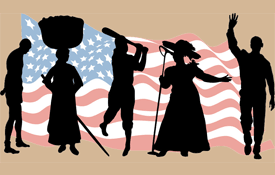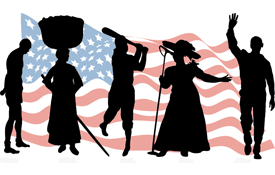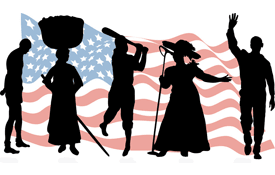Categories
-
0 Marian Wright Edelman - Children's Champion
- Civil Rights
- by Hugh Smith
- 04/27/2006
Here's a quick review of an important woman who has dedicated her life to the cause of helping others... Social activist and Children's Defense Fund founder Marian Wright Edelman hails from Bennettsville, South Carolina. Despite the racial segregation and poverty of 1939 when she was born, her parents encouraged her as a young girl to overcome these odds. Marian attended Spelman College, the first college for black women in the USA. In the next phase of her life, she proudly served in the Atlanta, Georgia office of the NAACP, an assignment that inspired her to become an attorney. Edelman graduated from Yale Law School in 1963, and in 1965, she became the first African American woman to pass the bar in Mississippi. Marian also distinguished herself by serving as the Director of the Center for Law and Education at Harvard University. She began the non-profit Children's Defense Fund (CDF) in 1973. CDF is a strong contemporary national voice for children. The Children's Defense Fund secured the 1990 Act for Better Child Care, dedicating over $3 billion in funds for improving day-care facilities and other programs to help poor children. Marian Wright Edelman's awards include: The Albert Schweitzer Humanitarian Prize The Heinz Award The Ella J. Baker Prize The Presidential Medal of Freedom. She was also a MacArthur Foundation Prize Fellow, and has served on the Board of Trustees of Spelman College. Marian has written many articles and books, including "The Measure of Our Success: A Letter to My Children and Yours" (A number 1 New York Times best-seller).
-
- Civil Rights
- by Hugh Smith
- 04/04/2006
The William Frantz Public School in New Orleans may not have any significance to you, but for Ruby Bridges, her elementary school is an important part of Louisiana and U.S. history. We received a question from Victoria Hart asking about the fascinating story of Ruby Bridges. Ruby was thrust into the spotlight as a six year old attending kindergarten on November 14, 1960, just months after a federal court ordered New Orleans public schools to desegregate. Read Ruby's reflections about how a brave six year old girl got some life lessons in school she'll never forget. It's the real Ruby Bridges story, from the lips of one of only four black students who would integrate the New Orleans public school system in the Fall of 1960.
-
0 Civil Rights Eyes on the Prize to Rise Again
- Civil Rights
- by Hugh Smith
- 03/15/2006
A new generation will be able to see the landmark civil rights documentary Eyes on the Prize in the Fall of 2006. The last airing on USA public television was over 12 years ago. In 1987, the first six hours of the series captured the imagination of TV viewers through riveting first person narratives of 1954 - 1965 civil rights stories told by black history people with varying degrees of fame. Eight additional hours were produced in 1990 expanding on the African American experience through 1985. When you don't own the rights to use intellectual property, you have two choices. Find public domain material, or pay to the license holder piper. Eyes on the Prize used 110 songs, along with 80 reels of archival film, and 95 still photos. Hundreds of licenses have expired keeping the production silent since 1990. Ford and Gilder foundations have raised $800,000 to renew these licenses for the rebroadcast of at least the first six hours. PBS will air the rebroadcast on the program American Experience. During the five years my team and I took to develop our Empower Encyclopedia black history project, we proactively sought out as much public domain material as was available to minimize the very situation in which the producers of Eyes in the Prize inherited. Sometimes a project gets so ambitious, that reasonable caution is cast aside in favor of financial agreements made by the buyer that have very negative long term consequences. If you come across an Eyes on the Prize DVD on an auction site, it's an illegal bootleg. Just remember that the series has been out of print for 12 years. Video tapes are extremely hard to find.


